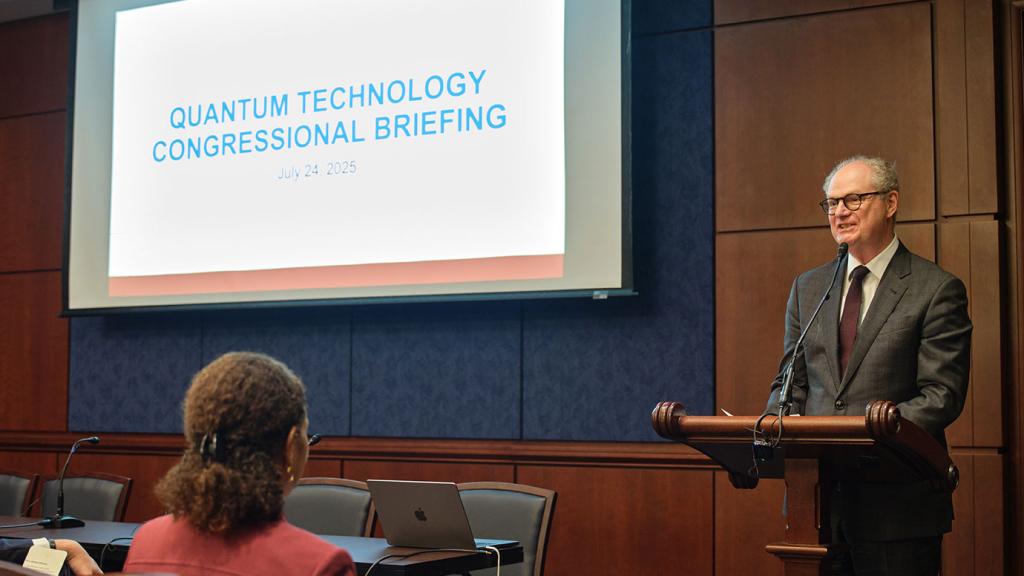Timothy Knowles, the Pritzker Director of Urban Labs, announced on Oct. 12 the winners of $2.15 million in Innovation Challenge grants from the UChicago Health, Poverty and Energy & Environment Labs. The winners have proposed innovative solutions to challenging urban policy problems. Each grantee’s proposal presents a compelling opportunity for a randomized controlled trial, with the potential to inform evidence-based policies with significant impact in Chicago and beyond.
The project grant recipients are:
- The Chicago Jobs Council will receive a $500,000 grant from the Poverty Lab to implement “Transforming Impossible into Possible,” a workforce development program that will help long-term unemployed adults identify and address psychological barriers that have prevented them from obtaining full-time employment.
- Elevate Energy, in partnership with ComEd, will receive $650,000 from the Energy & Environment Lab to use financial incentives and insights from behavioral economics to help low-income households increase their energy efficiency and improve on-time bill payment to save money on monthly bills.
- Treatment Alternatives for Safe Communities, in partnership with the Heartland Alliance and the Cook County Sheriff’s Office, will receive a $1 million grant from the Health Lab to create a “Supportive Release Center” to help individuals with mental illness transition to services in their communities following their release from the Cook County Jail.
[view:story=block_1]
Three advisory committees of civic leaders, practitioners, funders and academic experts chose the grant winners from a pool of more than 100 applicants. In the final round of the competition, finalists designed their proposals in close partnership with researchers from Urban Labs to create projects that ultimately would allow the respective labs to rigorously evaluate the programs selected. The data-driven analysis that will take place over the coming months will provide valuable insight into the effectiveness of these promising programs and demonstrate Urban Labs’ distinct approach to improving social policy. It will also give policymakers in Chicago and beyond blueprints for tackling some of the most daunting and seemingly intractable urban challenges of the 21st century.
“Design competitions like the Urban Labs’ Innovation Challenge have sparked advances in a range of fields, from architecture to engineering to education,” said Knowles. “The Innovation Challenge is a way to ‘crowd source’ urban policy innovation, harnessing the best collective ideas of front-line practitioners and urban policymakers to learn which approaches work, and then scaling up the programs that have the greatest social impact.”
Mayor Rahm Emanuel, who also attended the event, said, “Everyone in Chicago has a stake in finding effective solutions to make our city safer and more vibrant, and to improve the lives of every person who lives here—especially the most disadvantaged. I am excited to be here today for this announcement of the winners of the Urban Labs Innovation Challenge.”
Emanuel continued, “To build a 21st-century city, you need a 21st-century approach. Chicago is leading the way in making city data available to the public, to practitioners, to researchers. We are doing this to be transparent but also to spur innovation and creativity—to unleash the tremendous potential all of this data has, when combined with insights from front-line practitioners and the vibrant talent in neighborhoods across the city.”
The University of Chicago Urban Labs announced the Innovation Challenge at the organization’s launch in March 2015. With five highly synergistic labs that focus on crime, education, health, poverty, energy and the environment, Urban Labs is dedicated to helping cities make smarter choices to improve human lives on a broad scale. In June 2015, the Crime Lab and Education Lab announced $1.6 million in Innovation Challenge funding for three local programs that are working to make Chicago safer for young people to live, learn and work.






